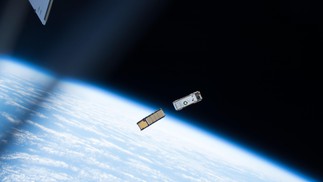
Software developed at EPFL used to control a flotilla of satellites
2017-05-19This past week, 28 CubeSats were released from the International Space Station (ISS). Eight of them are running EPFL software that was originally developed for SwissCube.

Astronomers make the largest map of the Universe yet
2017-05-19Astronomers of the extended Baryonic Oscillation Spectroscopic Survey, led by EPFL Professor Jean-Paul Kneib, used the Sloan telescope to create the first map of the Universe based entirely on quasars.

Coral reefs in the Gulf of Aqaba may survive global warming
2017-05-17Coral reefs in the Red Sea’s Gulf of Aqaba can resist rising water temperatures. If they survive local pollution, these corals may one day be used to re-seed parts of the world where reefs are dying. The scientists urge governments to protect the Gulf of Aqaba Reefs.

Antibody biosensor offers unlimited point-of-care drug monitoring
2017-05-16A team of EPFL scientists has developed several antibody-based biosensors that have the potential to help healthcare centers in developing countries or even patients in their own homes keep track of drug concentration in the blood.

Quantum reservoir for microwaves
2017-05-15EPFL researchers use a mechanical micrometer-size drum cooled close to the quantum ground state to amplify microwaves in a superconducting circuit.

A powered exoskeleton prevents the elderly from falling
2017-05-11The first smart exoskeleton that recognizes the loss of balance – and prevents falling – has been developed by researchers at Scuola Sant’Anna in Italy, EPFL in Switzerland, and tested at the Rehabilitation Center “Fondazione Don Carlo Gnocchi” in Florence.